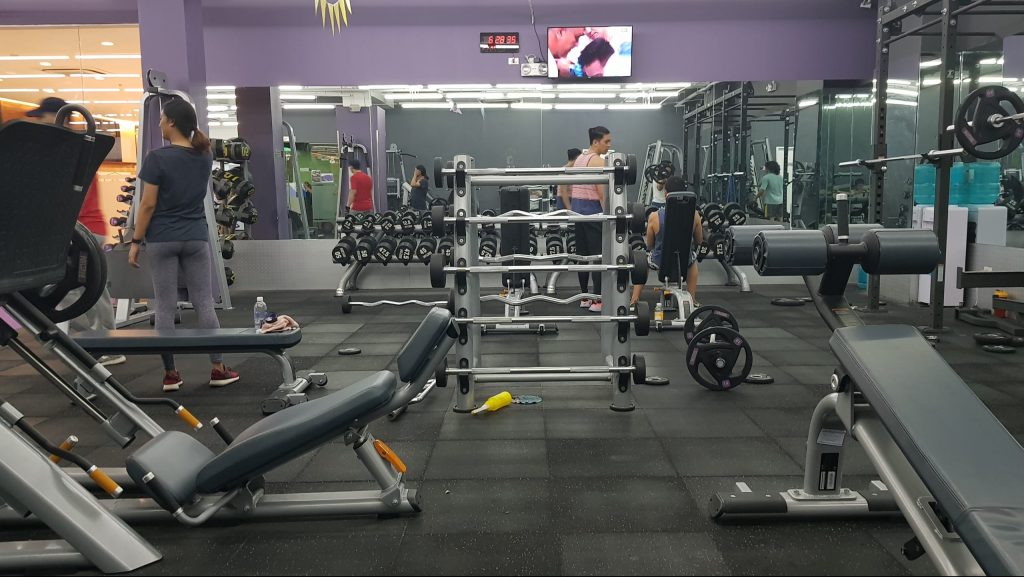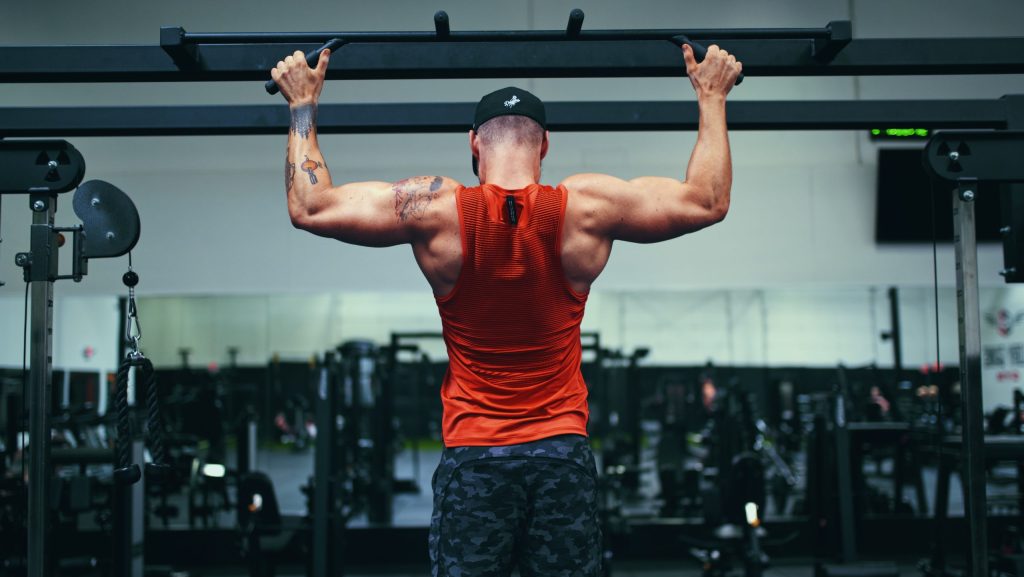Fitness & Bodybuilding is a discipline that demands both physical and mental strength. While the physical aspects are visible and often celebrated, the importance of mental strength, including resilience, focus, and motivation, is critical but less visible. This article focuses on the essential role of mental strength in bodybuilding, emphasizing how mental strategies contribute to physical achievements.
“Did you know? Mental resilience can enhance physical performance by up to 20%, highlighting the power of a positive mindset in achieving bodybuilding goals.”
Bodybuilding success is significantly influenced by mental factors such as resilience to continue towards goals, the ability to maintain a strong mind-muscle connection, and the discipline required for consistent training and progress. Mental barriers can be as significant as physical challenges in this sport.
This article covers several critical topics to help build and enhance mental strength in bodybuilding:
- The Psychology Behind Bodybuilding: Examines the psychological aspects of bodybuilding, including mental challenges and the benefits of exercise on mental health.
- Building Mental Resilience: Discusses methods to develop mental toughness and strategies for overcoming workout plateaus.
- Mind-Muscle Connection Mastery: Focuses on techniques to improve concentration during workouts and the benefits of a strong mind-muscle connection.
- Goal Setting for Maximum Growth: Highlights the importance of setting SMART goals and how they influence motivation and bodybuilding success.
- Harnessing Inner Drive and Discipline: Explores strategies to build motivation and discipline, essential for long-term bodybuilding commitment.
Understanding and improving the mental aspect of bodybuilding is crucial for both novice and experienced athletes. Mental strength supports physical training, helping to overcome obstacles, enhance performance, and achieve bodybuilding goals. By focusing on both mental and physical aspects, bodybuilders can maximize their potential and achieve greater success in their fitness journeys.
The Psychology Behind Bodybuilding
Bodybuilding demands not only physical strength but also a significant mental component. This section emphasizes the critical psychological aspects necessary for success in bodybuilding, focusing on overcoming mental blocks, the importance of a positive mindset and motivation, and the mental health benefits of engaging in this rigorous sport.
Overcoming Mental Blocks
Mental blocks are psychological impediments that can hinder a bodybuilder’s progress. These barriers often arise from fear of failure, perfectionism, and the constant pressure to improve. Effective strategies to overcome these mental blocks include:
- Goal Setting: Establishing clear, achievable objectives.
- Visualization: Employing mental imagery to enhance performance.
- Cognitive Restructuring: Changing negative thought patterns into positive ones.
Incorporating these techniques can help athletes push beyond their limits and achieve greater levels of performance.
Mindset and Motivation
A positive mindset and strong motivation are essential for sustained success in bodybuilding. Key factors include:
- Internal Motivation: Driven by personal goals and satisfaction.
- Goal Achievement: Setting and achieving objectives to boost motivation.
- Positive Reinforcement: Celebrating small victories to maintain a positive outlook.
Understanding what motivates an individual can lead to more effective training and greater adherence to bodybuilding routines.
Psychological Benefits of Exercise
Exercise, including bodybuilding, offers significant mental health benefits:
- Reduced Depression and Anxiety: Regular physical activity is known to decrease symptoms.
- Improved Mood and Cognitive Function: Exercise releases endorphins, enhancing mental well-being.
- Increased Self-Esteem: Achieving fitness goals can boost confidence and self-perception.
Engaging in bodybuilding not only improves physical health but also contributes to mental and emotional well-being.
Building Mental Resilience in Bodybuilding
Mental resilience is essential in bodybuilding, equipping athletes to handle challenges and setbacks effectively. This section focuses on strategies to build mental resilience, including resilience training techniques, overcoming workout plateaus, and emphasizing the importance of recovery for mental health.
Resilience Training Techniques
Mental resilience can be developed through specific training techniques. These include:
- Mindfulness meditation, which has been shown to improve stress management and focus.
- Stress management exercises to enhance emotional stability.
- Cognitive-behavioral techniques to adjust negative thinking patterns positively.
“Did you know? Regular mindfulness meditation can increase mental resilience by up to 30%, aiding athletes in managing stress and improving focus during training.”
Overcoming Workout Plateaus
Workout plateaus challenge bodybuilders to adapt their routines for continued progress. Strategies for overcoming these plateaus include:
- Varying workout intensity to stimulate muscle growth.
- Incorporating new exercises to prevent routine boredom and engage different muscle groups.
- Setting short-term, achievable goals to track progress and maintain motivation.
Effective Strategies for Breaking Plateaus:
- Varying workout intensity and type.
- Incorporating new exercises.
- Setting short-term goals.
The Role of Recovery in Mental Health
Recovery is crucial, encompassing more than physical rest. Active recovery methods, such as yoga and meditation, support physical and mental health, helping to maintain the balance necessary for sustained bodybuilding success. Adequate recovery prevents burnout, reduces injury risk, and contributes positively to mental well-being.
Building mental resilience is vital for bodybuilding success. Through targeted resilience training, effective strategies to overcome plateaus, and prioritizing recovery, bodybuilders can enhance their mental toughness. This comprehensive approach ensures athletes are prepared to meet and overcome the sport’s challenges, highlighting the importance of mental resilience in achieving bodybuilding goals.
Mind-Muscle Connection Mastery
The mind-muscle connection plays a crucial role in bodybuilding, enabling athletes to focus on engaging specific muscles during exercises. This connection is key to maximizing workout efficiency and effectiveness, providing a direct link between mental focus and physical performance. The following sections offer strategies for enhancing workout concentration, detailed techniques to strengthen the mind-muscle connection, and an overview of its benefits.
Enhancing Focus During Workouts
Concentration is essential for establishing a strong mind-muscle connection. Strategies to improve focus include visualization, where athletes imagine the muscle contracting, and mindfulness, which involves concentrating on the sensation of the muscle at work. Additionally, minimizing distractions, setting clear workout goals, and employing breathing techniques can enhance focus, ensuring each exercise is performed with maximum engagement.
“Studies show that athletes who practice visualization techniques can improve their muscle strength by up to 13.5% without physical exercise, highlighting the power of the mind-muscle connection.”
Techniques for Mind-Muscle Connection
To deepen the mind-muscle connection, athletes can employ specific techniques such as:
- Performing exercises slowly to fully experience the muscle’s range of motion.
- Pausing at the point of maximum contraction to intensify muscle engagement.
- Altering exercises to approach muscles from various angles, enhancing awareness.
These methods, combined with focused mental engagement, help to maximize physical training benefits.
Benefits of Mind-Muscle Synergy
A well-developed mind-muscle connection offers several benefits, including increased muscle activation, which leads to more significant growth and strength gains. It also reduces the risk of injuries by ensuring proper exercise form and control. Athletes often report higher satisfaction and motivation levels as they achieve a greater understanding of their body’s capabilities.
Mastering the mind-muscle connection is fundamental to enhancing bodybuilding performance. Through dedicated focus, employing specific techniques, and understanding the connection’s benefits, athletes can improve their training efficiency and effectiveness. This comprehensive approach enables bodybuilders to achieve better results and foster a deeper connection with their physical selves.
Goal Setting for Maximum Growth in Bodybuilding
Setting goals is essential in bodybuilding for guiding training and measuring progress. This segment outlines the process of establishing SMART goals, tracking progress effectively, and the importance of adapting goals to ensure continuous improvement in bodybuilding training.
SMART Goals in Fitness
In bodybuilding, goals should be Specific, Measurable, Achievable, Relevant, and Time-bound (SMART) to be effective. Specific goals clarify what is to be accomplished, making it easier to focus efforts. They must be measurable to track progress and determine when the goal has been achieved. Ensuring goals are achievable keeps them realistic and attainable, while relevance ties the goal to your broader fitness objectives. Lastly, setting a timeframe provides a deadline that can motivate and prioritize tasks.
“Athletes who set SMART goals are 30% more likely to achieve their fitness objectives compared to those who don’t, underscoring the effectiveness of strategic goal setting.”
Tracking Progress
Monitoring advancements towards your goals is crucial in bodybuilding. Effective tracking can include:
- Workout Logs: Keep detailed records of exercises, weights, sets, and reps.
- Body Measurements: Regularly measure various body parts to monitor physical changes.
- Photographic Records: Take consistent photos from multiple angles to visually document progress.
This data not only motivates but also informs training adjustments and future goal setting.
Adjusting Goals Dynamically
Flexibility in goal setting is necessary due to the dynamic nature of bodybuilding. As you progress, revisiting and adjusting goals ensures they remain challenging yet achievable. This adaptability allows for incorporating new techniques, responding to changes in personal circumstances, and maintaining alignment with long-term fitness visions.
Strategic goal setting is crucial for maximizing growth and success in bodybuilding. By creating SMART goals, maintaining diligent progress tracking, and adjusting goals as needed, bodybuilders can navigate their training more effectively and efficiently. This approach not only facilitates achieving specific fitness milestones but also supports long-term development and satisfaction in the sport.
Harnessing Inner Drive and Discipline in Bodybuilding
Discipline and motivation are crucial for bodybuilding success. They enable athletes to adhere to their training and diet plans consistently. This section outlines effective methods for building self-discipline, strategies for sustaining motivation, and overcoming psychological barriers to training.
Cultivating Self-Discipline
Building self-discipline involves establishing clear, realistic goals and developing structured plans to achieve them. Implementing routines that become habitual reduces the need for constant decision-making, conserving willpower. It’s essential to identify and manage triggers that may disrupt discipline, enhancing focus on long-term fitness goals. Mindfulness and self-awareness exercises can strengthen control and discipline, integral for bodybuilding success.
“Research indicates that athletes who engage in regular mindfulness practices can increase their discipline and focus by up to 25%, underscoring the effectiveness of mental training in physical fitness routines.”
Staying Motivated Long-Term
Maintaining motivation is key to enduring the demanding nature of bodybuilding. It involves connecting with the fundamental reasons behind bodybuilding efforts, such as health benefits or personal achievement. Celebrating small successes fosters a sense of progress. A supportive community or coaching can offer the necessary encouragement. Incorporating variety into workout routines and setting new challenges can rejuvenate interest and motivation.
Overcoming Internal Resistance
To overcome reluctance towards training, it’s crucial to:
- Identify the Source: Understanding the underlying reasons for resistance, such as fear or uncertainty.
- Break Down Tasks: Smaller, manageable steps can make larger goals seem more achievable.
- Positive Visualization: Focusing on the outcomes and benefits of training enhances motivation.
- Growth Mindset: Viewing challenges as opportunities for learning and growth.
Inner drive and discipline are foundational for progress and achievement in bodybuilding. By fostering self-discipline, maintaining motivation, and navigating psychological barriers, athletes can enhance their training efficacy. This guidance offers actionable strategies for bodybuilders to develop the mental resilience necessary to achieve their fitness and bodybuilding goals.
Conclusion: Fitness Mindset: Mental Strength in Bodybuilding
Bodybuilding is a comprehensive discipline that challenges both physical and mental capacities. This article has provided insights into various aspects essential for success in bodybuilding, emphasizing the balance between mental strategy and physical execution.
“Harness the power of your mind, set strategic goals, and cultivate discipline to transform your physical and mental health. The path to excellence begins with the first step. Start today.”
Key Insights:
- Mental health significantly influences physical achievements in bodybuilding.
- Overcoming challenges and making continuous progress require mental resilience.
- A strong mind-muscle connection enhances training efficiency.
- Goal setting using the SMART criteria facilitates measurable progress.
- Sustained motivation and overcoming training reluctance are driven by inner discipline.
Bodybuilding demands more than just physical strength; it requires a strategic approach to mental health, goal setting, and maintaining motivation. Understanding and applying psychological strategies are critical for overcoming mental blocks and fostering a positive mindset. Building mental resilience helps athletes push through difficult periods, while mastering the mind-muscle connection can make workouts more effective.
Goal setting is crucial for defining clear and achievable objectives. Tracking progress against these goals allows for adjustments and helps maintain focus on the ultimate aim. Cultivating a strong sense of discipline and motivation ensures that bodybuilders can adhere to their training regimens over the long term, even when facing internal resistance or external challenges.
In conclusion, the intersection of mental fortitude and physical training defines the essence of bodybuilding success. The strategies and insights discussed in this article highlight the importance of a holistic approach to bodybuilding, one that incorporates both the development of physical capabilities and the strengthening of mental resilience. By embracing these principles, bodybuilders can achieve their fitness goals, surpass their expectations, and realize their full potential in both bodybuilding and life.













